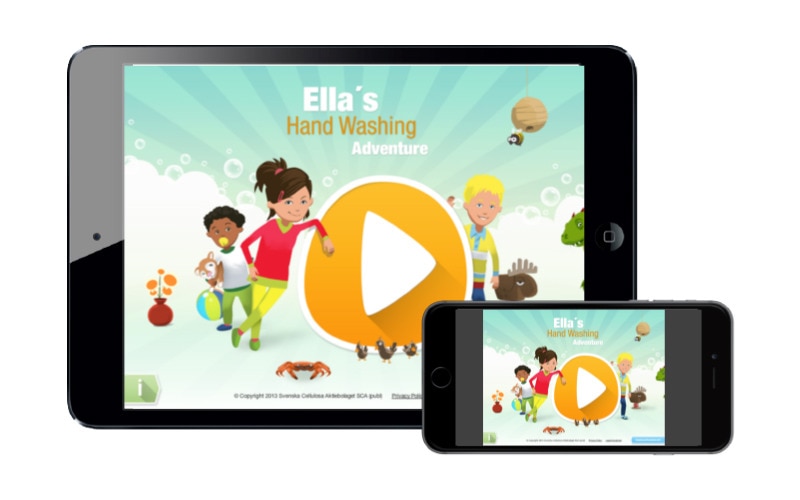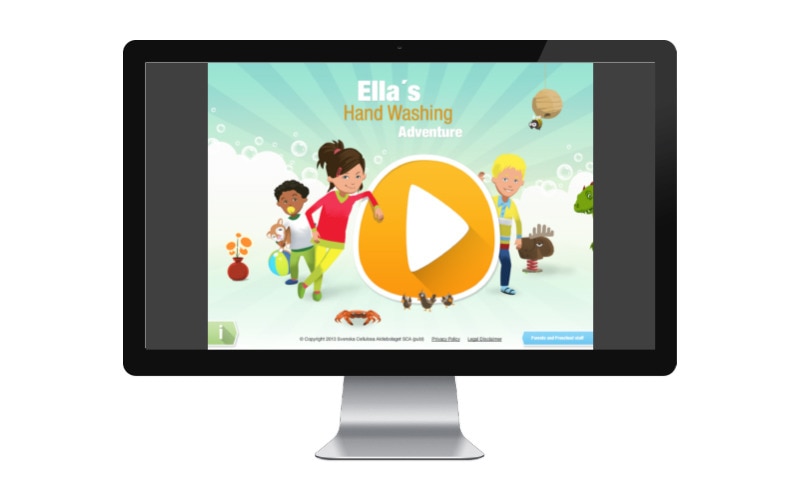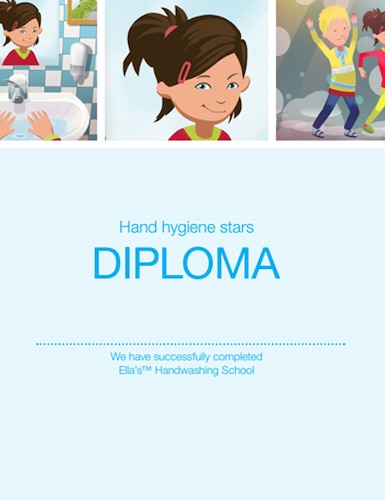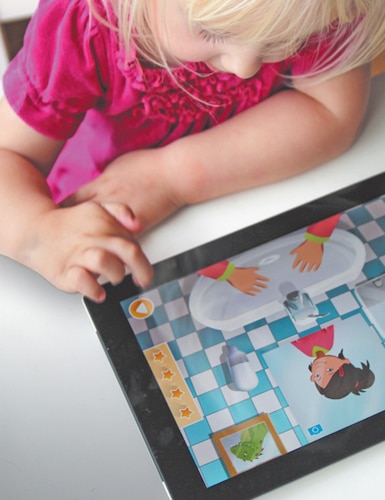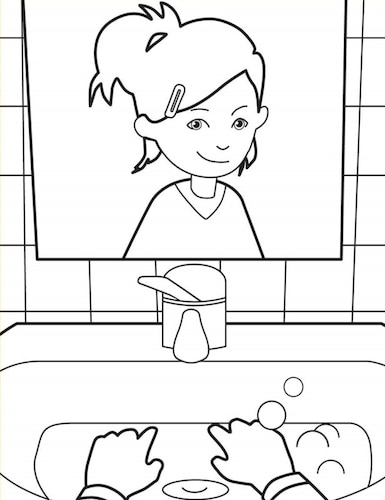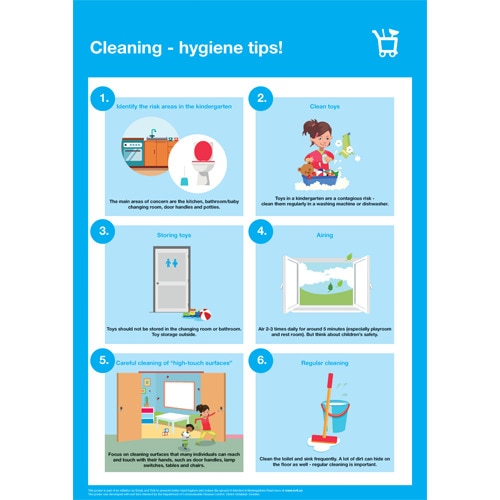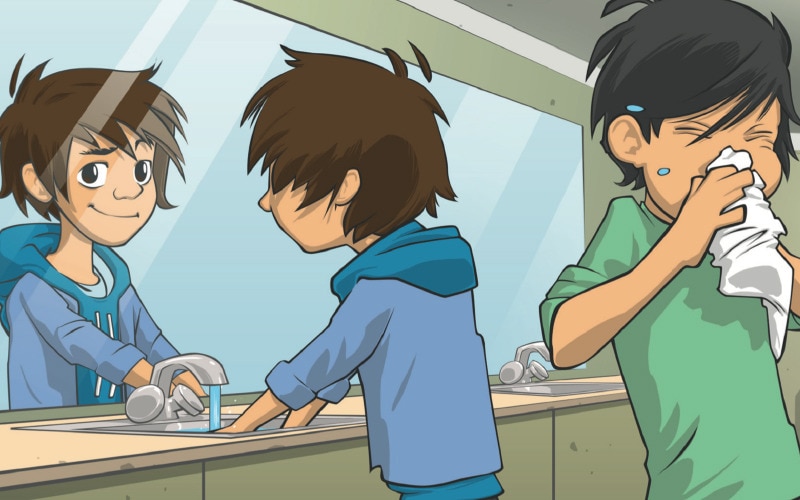
Inspire and motivate with Ella’s Hand Washing School
Days spent at kindergarten are packed with activities and finding time to teach and supervise good hand hygiene is a challenge. It’s easy to feel like you are nagging when you have to remind the children of doing their hand washing all the time. Teaching good hygiene can be a challenge, but now more than ever it is critical in reducing the spread of colds, flu and viruses. So we’ve put together the Ella’s Hand Washing School package, which includes an app, hygiene brochures, teaching material as well as activities to help make hand washing a little more fun.
Play the game
Discover our free Ella material
Here you find a leaflet, a coloring poster, a hand washing poster and a diploma. Make hand washing something fun and let the kids explore the washing routine in new ways of learning.
There are three main types of transfer (viruses and/or bacteria) that are desired to interrupt:
- from the hands to – eyes, nose, mouth and open sores
- to another person either via direct hand-to-hand-contact or via indirect hand-to-object-to-hand-contact
- from hands to food during food preparation
Wipe away the germs!
Using Liquid or Foam soap and rinsing with water removes a large fraction of most bacteria — especially when followed by thorough drying. Using soap and rinsing with water is also an effective method of reducing the number of viruses on the skin.
Drying your hands after washing is as important as cleaning them!
Did you know...
It is not only important to know how to wash your hands, when to wash your hands is equally important
Children should be motivated to wash their hands:
- When hands are visibly dirty
- After visiting the toilet
- After playing outside
- Before eating snacks and meals
- When coming home
- After blowing the nose
Parents/Teachers should take special care to wash their hands:
- When hands are visibly dirty
- After visiting the toilet or helping a child with a toilet visit
- After being outside
- Before eating and handling food
- When coming home
- After blowing the nose or assisting a child
Sing Twinkle, twinkle little star
It takes about 20 seconds to sing Twinkle, twinkle little star and that´s the same time it should take for a child to wash their hands. Do these four steps and sing:
- Wet your hands with clean, warm water
- Apply liquid or foam soap and rub your hands together vigorously and scrub all surfaces
- Rinse with clean water
- Dry hands until thoroughly dry with a paper towel

